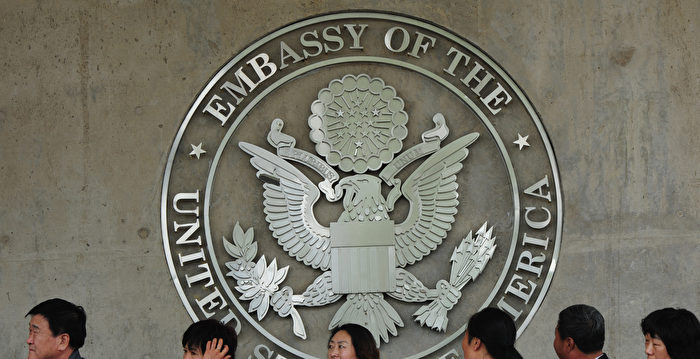[Epoch Times November 17, 2021](Reported by Epoch Times reporter Li Yun) Biden and Xi Jinping held an online summit on the 16th, after which the United States and China relaxed each other’s visa restrictions for journalists.
After Xi Jinping and Biden concluded several hours of online talks, China News Agency reported on November 16 that before the first video meeting between China and the US, three consensuses were reached on media issues.
1. The two sides shall mutually guarantee that permanent reporters can travel to and from each other’s country normally under the premise of abiding by the epidemic prevention regulations.
2. The US promises to issue a one-year multiple-entry visa to Chinese journalists and will immediately initiate domestic procedures to resolve the issue of visa stay period for Chinese journalists. After the U.S. policies and measures are in place, China will grant U.S. media reporters the same visa and stay period treatment.
3. Both parties will approve and approve visas for new resident journalists on an equal basis.
That night, the US State Department issued a statement confirming the news. The statement said that China has promised to issue visas to a group of American journalists who are eligible to apply for visas, and the United States will continue to issue visas to Chinese journalists.
At the same time, China has promised to extend the validity period of US journalists’ visas to one year, and the US will also give Chinese journalists the same treatment. China promised to allow American journalists to leave and return to China freely. The US plans to facilitate similar treatment for Chinese journalists.
In this regard, Twitter netizens have heatedly discussed:
“Is the U.S. government trying to support the CCP’s external propaganda in its own country this time?” “There is no freedom of the press in mainland China. Even if journalists’ visas are relaxed, Western journalists will not be able to do anything in China!”
“CCP spies will have freedom of the press when they arrive in the United States. Do American journalists have freedom of the press when they arrive in China? The unequal exchanges doomed the United States to suffer and the CCP to benefit.”
“Even if we let go, we should be equal. It is ridiculous to completely restore the past. The number of journalists stationed by China (the Communist Party) in the United States is several times that of the United States, and they can travel around without restriction. Xinjiang is not allowed to freely interview journalists in the United States. .”
The U.S. and China launched a media expulsion war last year
During the tenure of former U.S. President Trump, tensions between China and the United States on issues ranging from science and technology, trade to human rights have spread to the news media field. In February last year, the two countries launched a media expulsion war.
Because the term “Asian Sick Man” was used in the Wall Street Journal’s report at that time, three reporters were expelled by the CCP.
After that, the United States listed five Chinese media organizations in the United States as “foreign missions,” and requested that the number of CCP official media in the United States be reduced from 160 to 100, and the validity period of work visas for Chinese journalists was shortened to 90 days.
In March of the same year, the CCP expelled about 12 journalists based in China from the three major US media outlets: The New York Times, The Washington Post, and The Wall Street Journal, and delayed the issuance of press cards for other American journalists.
In June of the same year, the United States again announced the addition of four CCP media agencies in the United States as “foreign missions.” The CCP media reported in August that nearly 40 Chinese journalists stationed in the United States had not been approved for visa extensions, and they were forced to The dilemma of leaving the United States.
Pompeo, then US Secretary of State, said in September last year that the US restrictions on Chinese propaganda agencies are completely incomparable with the CCP’s suppression of American free media.
U.S. and Chinese journalists receive serious unequal treatment
For a long time, the treatment received by the US journalists in China and the CCP journalists in the United States has been seriously unequal.
CCP reporters can cover freely in the United States, but American reporters are strictly restricted by the CCP in terms of their number, visas, and scope of activities. At the same time, the CCP also interfered with their reports by controlling visas and interviews, and even beat and illegally detained them.
Bloomberg quoted a U.S. official with knowledge of the matter in February last year as saying that no matter what decision it takes, the U.S. government is determined to resolve the serious imbalance between the U.S. and China’s treatment of the press.
According to the report, some government officials believe that there are more than 500 journalists in the media that are almost completely controlled by the CCP, while the CCP only allows about 75 U.S. reporters to live and work in China, and once the so-called ” When the report was unfair, the CCP used expulsion and visa refusal to retaliate.
Editor in charge: Fang Ming#
.
